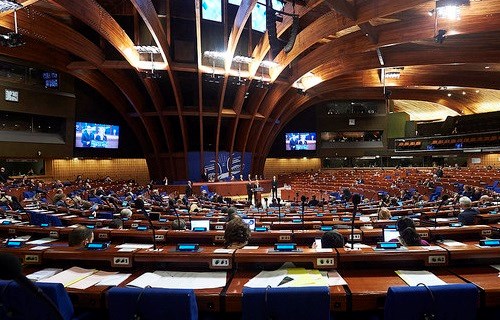Council of Europe moves to improve sports governance
A ‘feudalisation of powers’ has given rise to ‘widespread corruption and mismanagement’ in international sports organisations, says a motion for a resolution tabled last week in the Parliamentary Assembly of the Council of Europe (PACE).
Referring to the findings in Play the Game’s Sports Governance Observer report, Danish member of PACE, Mogens Jensen, on 27th January tabled a motion for a resolution on improving the governance in sports organisations. According to the motion, named ‘The legitimacy crisis in international sports governance’ and supported by 20 other PACE members, the state of governance in the international sports federations is in such a bad shape that “it is about time to react”.
“In a recent report, “Play the Game” concludes that the legitimacy crisis in international sports governance is caused, first and foremost, by flawed institutional design, and in particular by a lack of robust control mechanisms that allow both member federations and external actors to control international sports federations,” the motion says.
The motion states that for the sports federations to regain their legitimacy, they must:
- Engage in thorough institutional reform,
- Change the patterns of their decision-making processes,
- Ensure transparency and accountability,
- Pay more attention to human rights.
To achieve the listed requirements, the motion calls on the committee to consider how to follow up on two specific resolutions that PACE has already adopted.
Resolution 1875 “Good governance and ethics in sport” was adopted in 2012 and served as a forerunner for the “Convention on the manipulation of sports competitions”, which was signed by European ministers in 2014. The resolution also held recommendations that urged member states and governing bodies in sport to “strive to strengthen financial fair play, ensure that young athletes are effectively protected and improve the mechanisms of governance within sports institutions”.
The other adopted resolution regarding sports governance is from last spring and aims more directly at FIFA and on how to achieve reform of football’s world governing body. This resolution, named ‘The reform of football governance’, also encouraged FIFA to have another vote on the 2022 hosting nation.
The motion tabled last week hopes for an examination of how the Council of Europe and its member states, as well as the international sports organisations and other stakeholders, can follow up on these recommendations and work together to strengthen good governance, democracy and the respect for human rights.
The motion for a resolution was signed by 21 council members and will be further considered at a standing committee meeting in March this year.
PACE is a part of the Council of Europe and represents Council's 47 member states. The texts adopted by PACE – recommendations, resolutions and opinions – serve as guidelines for the Committee of Ministers, national governments, parliaments and political parties.
More information
- More about the Sports Governance Observer
- Read the Resolution 1875 'Good governance and ethics in sport'
- Read the Resolution 2053 ‘The reform of football governance'






